Macalester College, to its community members today, may call to mind any number of things from multiculturalism to polar vortexes to cheesy eggs. Yet Macalester owes its identity to years of experiences and countless students, faculty members and administrators who have collectively shaped the college into the school we know so well today.
Starting last year, The Mac Weekly sought to highlight some of the most influential figures in Macalester history to whom we can attribute our modern day college experience. This year we travel back 50 or so years to Macalester College of the 1970s and 1980s, a school led at the time by John B. Davis Jr., former Macalester president and one the schools official founders.
Born in 1921 to a Massachusetts-based family that placed a strong value on education, John B. Davis Jr. was a lover of the arts and didn’t easily escape notice. He was known for his trademark look of a smart bow-tie as well as his often surprising directness and honesty. From an undergraduate degree at the University of New Hampshire, Davis went on to receive a doctorate in education at Harvard University and later made his way to Minnesota where he served as a school superintendent.
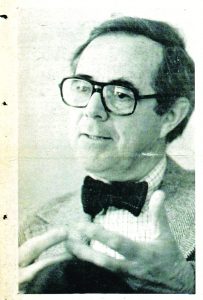
To Macalester College especially, though, Davis was “the man to get your institution back on track” according to his obituary in the Pioneer Press. After Macalester’s sole donor of the mid-1950s, DeWitt Wallace, stopped giving money to the school due its irresponsible budgeting, Davis stepped up to the school’s presidency position. Davis, who at the time had only eight years of experience with the Minnesota school system, found himself leading a college nearly $2 million in debt and with little structure to its spending. Yet, soon after taking the position, any doubt of Davis’s ability as a president of a higher-education institution was quickly dismissed. After strengthening Macalester’s staff, Davis worked on organizing the college’s budget, tackling its deep debt and finally persuading Wallace to return to his generous donations.
Davis served as Macalester’s president until 1984 and left the college with a secure financial plan and reliable administration. Today, he is remembered in the Twin Cities community for his direction of a previously struggling St. Paul Chamber Orchestra as well as the Children’s Theatre Company in Minneapolis.
Of his remarkable rescue of Macalester from financial collapse, Davis often remarked that he shared responsibility for his success with other school leaders and institutional changes. Yet, as President Brian Rosenberg noted in his homage to the former leader after Davis’s death in 2011, “while John may not have been sufficient on his own to reshape the institution, he was indisputably necessary.”
It is safe to say that without the efforts of former President John B. Davis Jr., Macalester might not be the college we know today. We can attribute, in part, each remarkable experience of our college life to the school’s history which shaped and created Macalester College.

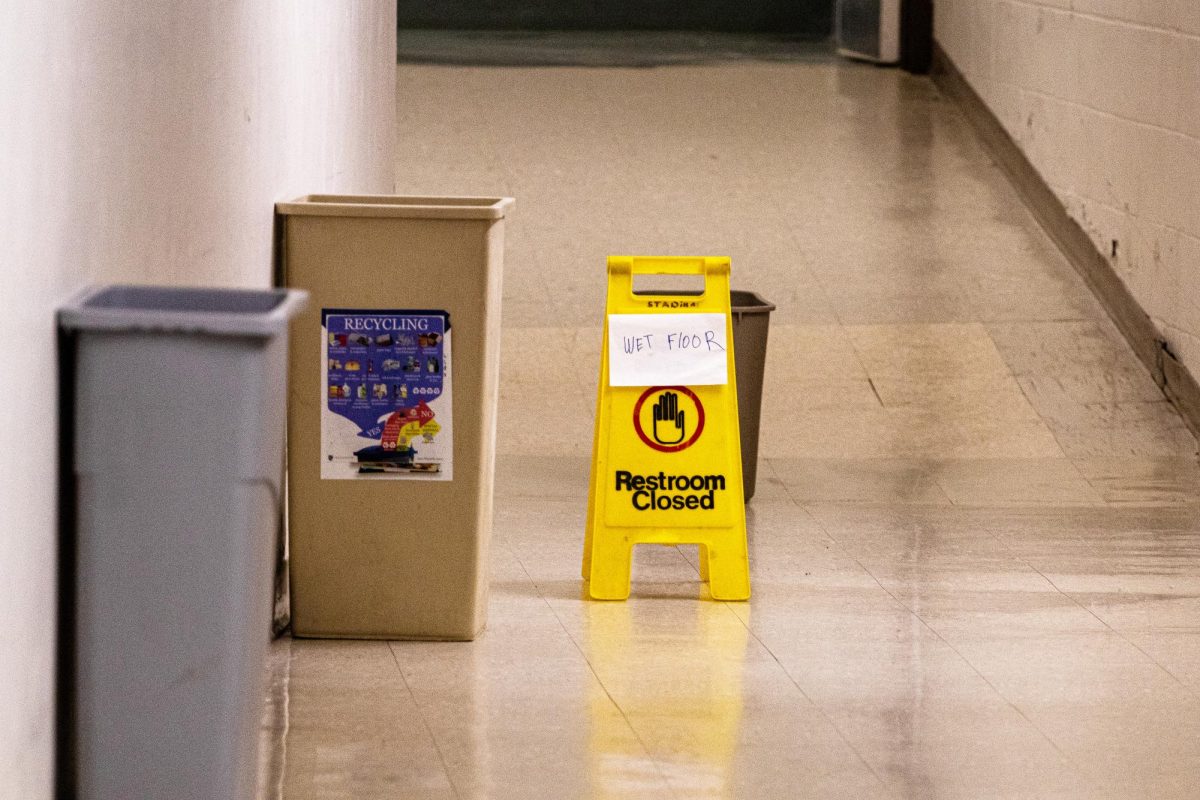
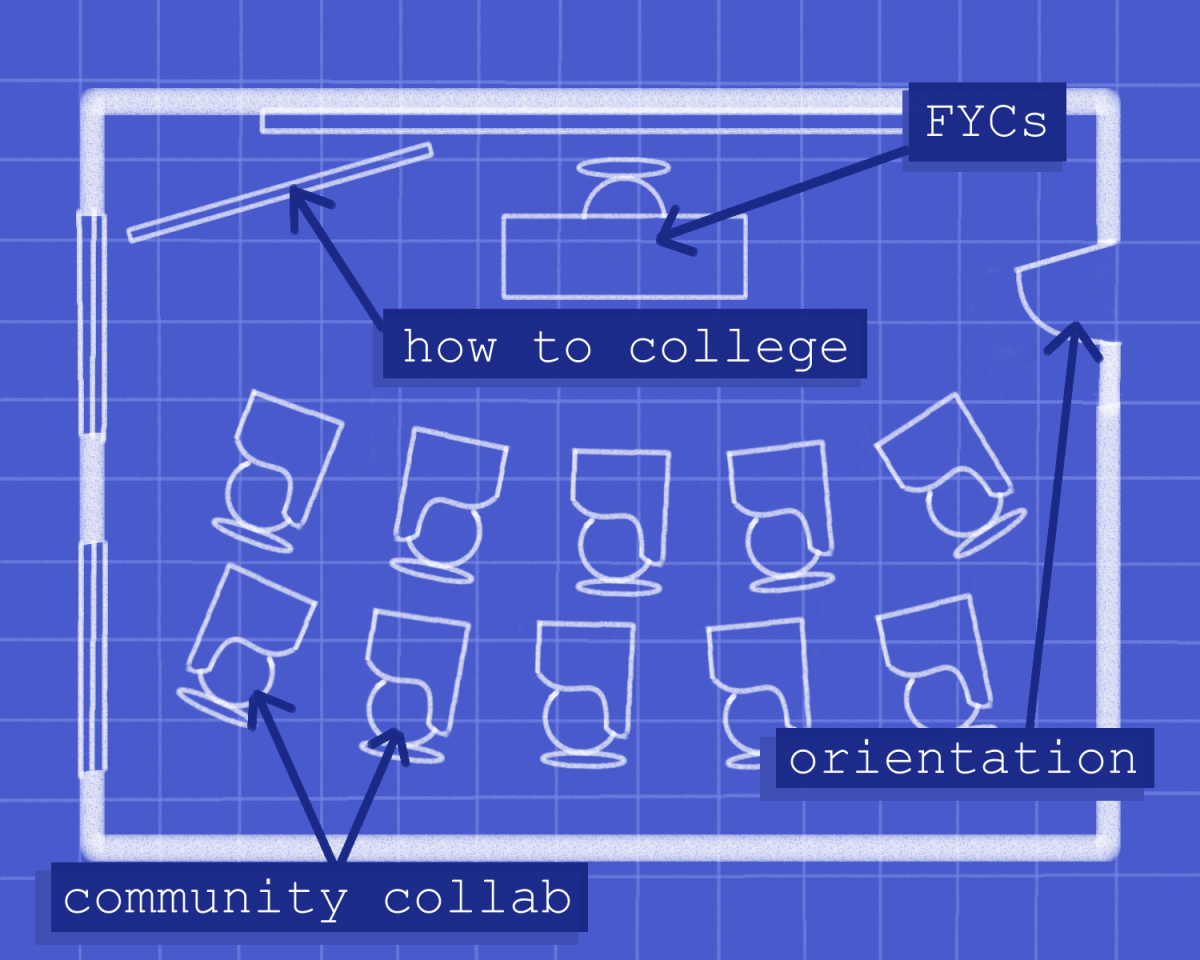
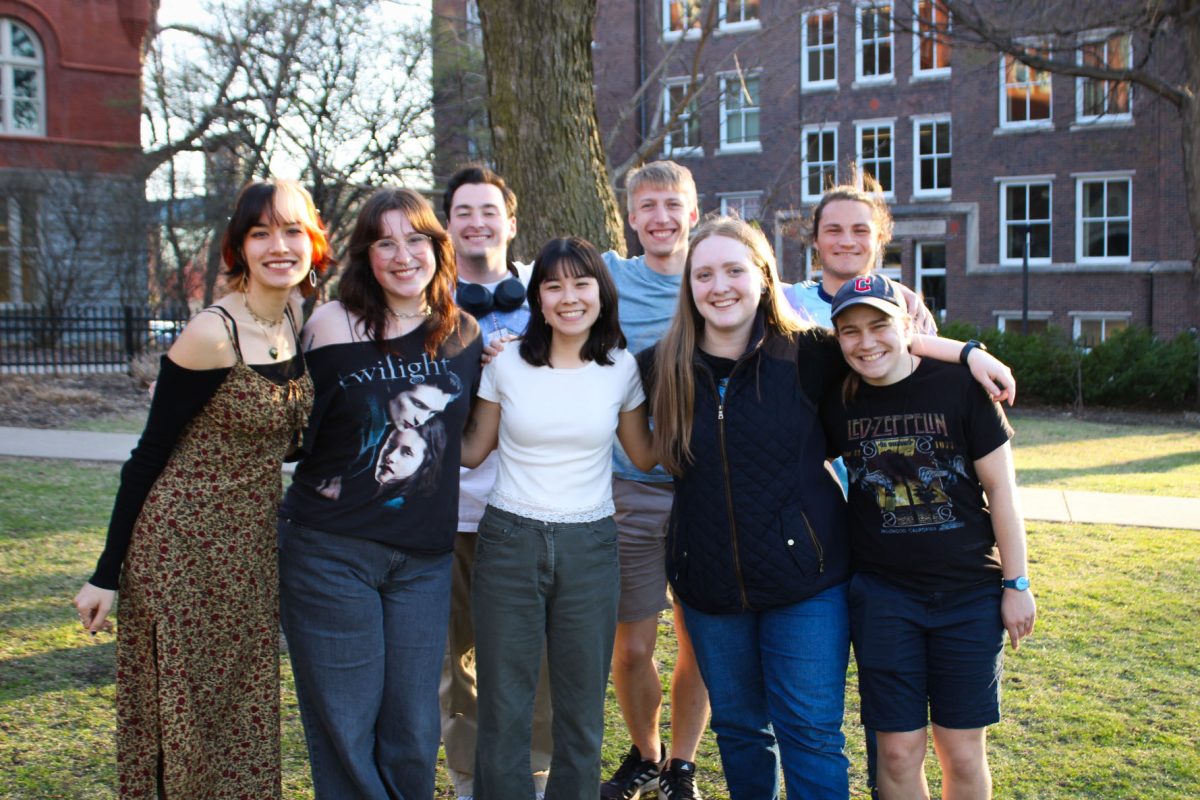
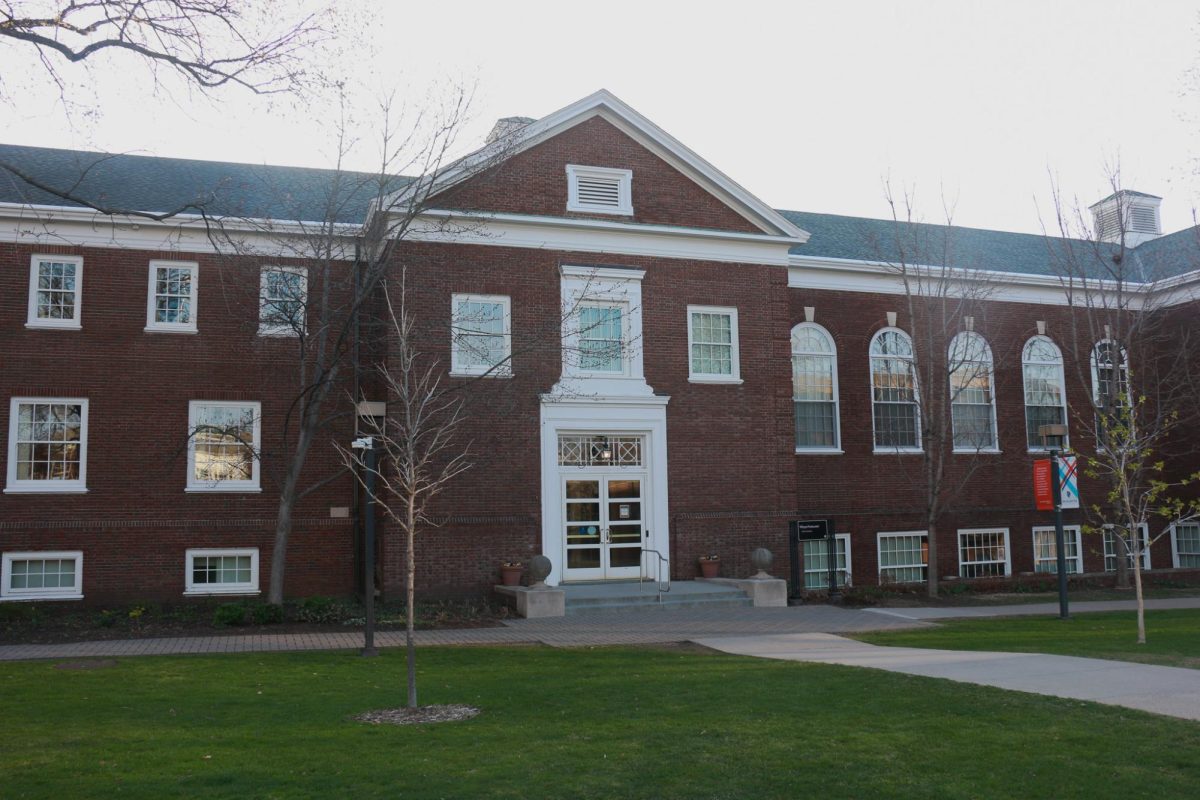

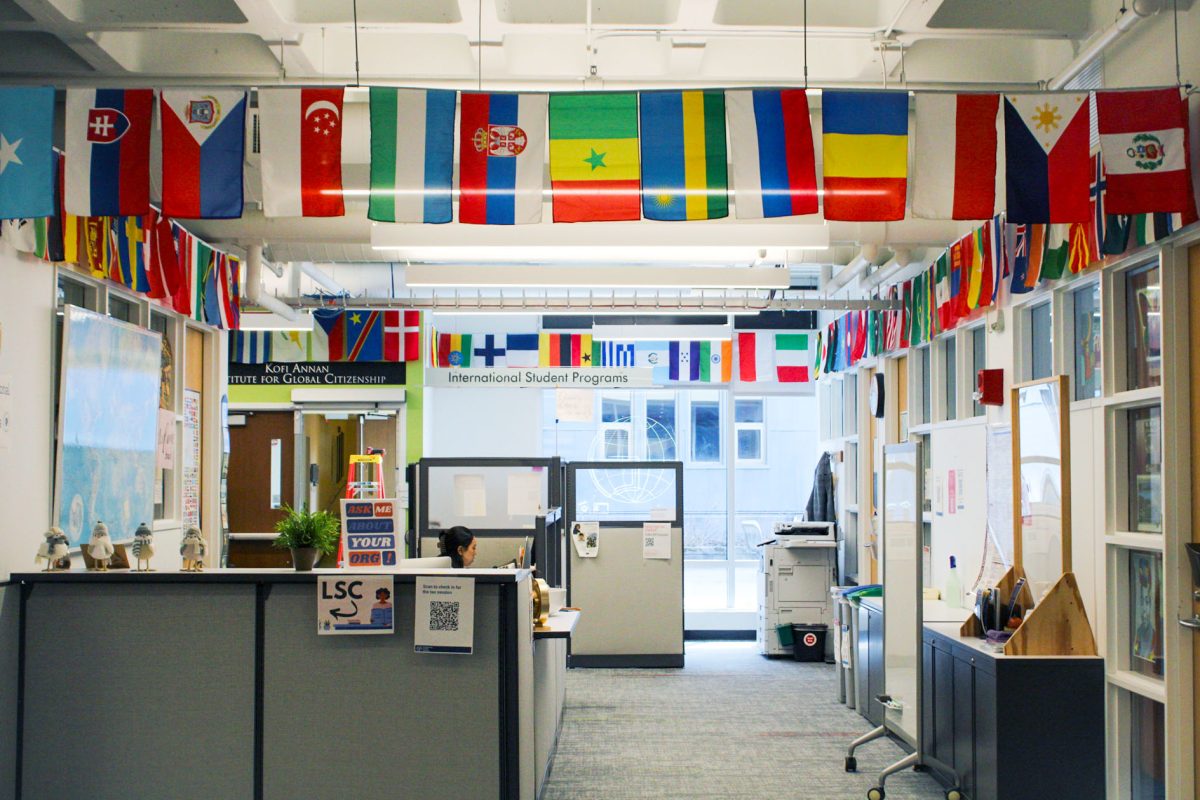

Saul Davis • Feb 28, 2022 at 9:51 pm
John B. Davis did far more than secure the financial footing and organization of the college. I am pretty sure the looseness of the 70s had more to do with Wallace’s withholding funding than the budgeting. Davis brought a sobriety to campus as well as structure. The looseness was gone. The language/culture houses adjoining the campus were the only remnants of that time. 37 Macalester Street housed Russian House and Hebrew House. Hebrew House did a lot of programming and hosting, serving as the campus Hillel, but our parties each semester, one of which lasted far into the night, had consequences. There was no phone call, but there were no buildings left between 37 and the President’s mansion, and with our windows open, we surely kept them up far too long. I’m quite sure that had something to do with Hebrew House being moved on-campus and made much less residential, which was quite unfortunate. Davis had many liberal qualities, but also many conservative qualities. He did, however, cement the college’s philosophy in place, all the cultural values and involvement in the community that is now taken for granted. The seeds were there, but he planted them and gave them their shape. And without pushing people into one political view.
Barry Neil Peterson • Jul 18, 2020 at 10:30 am
John and I became friends on the first day of school, 1980, shortly after the convocation. I was an incoming freshman, and met President Davis in his office with my roommate, Arnold CS Cheng, and his dad, the eminent Franklin FY Cheng, MD, director of University of Hong Kong’s Department of Surgery at Saint Mary’s Hospital. Through our thirty-one year friendship, until his passing in 2011, I learned many things about this warm and erudite individual.
John served not only in the capacities which were discussed in the article, but also as superintendent of Minneapolis Public Schools and chairman of the board of directors for the U.S. Ninth District Federal Reserve Bank (AKA: The Minneapolis Fed). He often spoke of his son, John B. Davis III, a maritime explorer who salvaged naval vessels for the U.S. government and other histories. I believe the name of his son’s website is/was http://www.shipwreckcentral.com, although I can’t return to the site as my computer was hacked by an outside party when I last visited.
John brought the Minneapolis Children’s Theater through a devastating period in the history of the troupe after its former director was arrested for sexually abusing many of the children. With regard to his time as superintendent of Minneapolis Public Schools, he brought the students into the busing period of the 1970’s to establish greater amity between kids of all races and backgrounds.
While I didn’t graduate from Macalester College, having been severely abused by a small number of residents of the Dayton Hall residence hall, which has been demolished and replaced with another building, I did visit the college on a nearly daily basis for two and a half years following my official departure, until Macalester College Student Dean Mary Lundblad called me into her office to explain that if I wanted to attend classes, I would have to pay tuition. Students and professors had been inviting me into classes on a frequent basis. I submitted to her request by not visiting school anymore, and later attended a cultural boarding school in Norway, with an exchange in Denmark. I later attended a language and cultural institute in an embassy neighborhood of San Jose, Costa Rica.. As of this writing, on Saturday, July 18, 2020, I am serving as a language coach for Chinese physicians and engineers. I work from home.
One thing that I remember from my freshman year was that Mac put together a personal finance course, at no cost to students. At the time, and despite coming from a well-heeled professional family, I had a very low self-esteem and didn’t think that I would every earn enough money to make a personal finance course worth my time. It was a critical error on my part. If the College does offer a course like this to students, I encourage everyone to take advantage. Years later, I got involved with the financial industry and did take a financial literacy course. It was less painful than I thought it would be.
Getting back to John, he was also a member of the board of directors of the Northwestern Mutual Life Insurance Company, along with Walter Heller, a University of Minnesota professor of economics who served U.S. President John F. Kennedy as his economics adviser.
John’s manner and friendship meant the world to me. He would be 99-years old this year were he still alive.
Melanie Hughes • Sep 7, 2019 at 1:27 pm
I’ve learned many important things via your post. I would also like to state that there may be situation where you will make application for a loan and don’t need a cosigner such as a Federal Student Aid Loan. In case you are getting that loan through a traditional loan service then you need to be able to have a cosigner ready to make it easier for you. The lenders are going to base that decision over a few issues but the most important will be your credit worthiness. There are some loan providers that will in addition look at your job history and come to a decision based on this but in many cases it will be based on on your credit score.